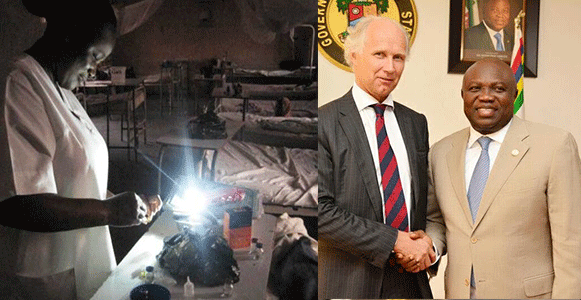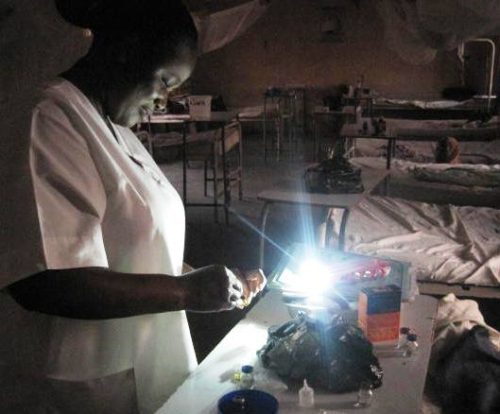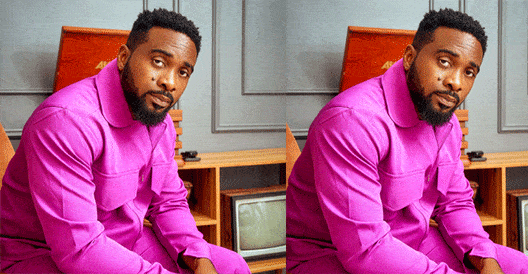Featured
Norway Produces 36,000megawatts Of Electricity For 5Million People; Nigeria Produces 3,600megawatts For 200M People

Norwegian Ambassador to Nigeria, Jens-Petter Kjemprud, speaks on how his home country relates with Nigeria in the areas of trade, health, education and infrastructural development, among others.
Let’s starts with how your country has been relating with Nigeria.
The relationship has been very strong in recent years; since I assumed office here about one and a half years ago, the Nigerian foreign minister has visited Norway twice and the Norwegian foreign minister was here twice. We have also had a number of other ministerial visits to Norway and our deputy minister visited Nigeria.
How about people to people relations?
We have had trade relations since the 1890s when Norway started exporting stock fish to the two ports of Lagos and Aba. We expanded on that with our relationship with the Nigerian Ministry of Agriculture which we cooperate with on research on fish resources and more than 50 Norwegian companies are now engaged in the oil sector. We also have many Nigerian students studying for degrees in oil engineering in Norway to strengthen the Nigerian oil sector.

What are the areas of cooperation that you think the Norwegian government may like to improve on with Nigeria?
We are very happy with the cooperation in the oil sector, so we will continue focusing on that; but we also believe that we have a good possibility in other sectors. For example, we have a Norwegian company engaged in a big solar plant in Jigawa; we are also looking into other areas of the solar power industry mainly in the off grid system. Norway has comparative advantage in hydro power; we produce 99 per cent of our electricity from hydro power. What that means is that we have a lot of capacity in the hydro power sector which can contribute significantly to ensuring better energy supply in Nigeria. Norway produces 36,000megawatts from hydro power for five million people while Nigeria produces, on a good day, 3,600megawatts for 200million people, which means that Nigeria has to produce its power from generators and from the use of diesel which is expensive and does not benefit manufacturing in the country. So we believe renewable, solar and hydro power has potentials in Nigeria and will benefit the economy immensely and in particular the manufacturing sector; we produce ten times more than Nigeria and for far less number of people. So it is an obvious area that we could cooperate and where we would be happy to work closely with Nigeria.
What is the volume of trade between the two countries?
Statistics is always difficult but the total volume of trade is around $10billion annually which is mainly in the oil sector, which includes subsea, offshore, repairs; shipping is another big area in our relationship. We have approximately one Norwegian ship docking in Lagos everyday which means we are ever present in the port of Lagos. We have a small amount of ships docking in Port Harcourt but we are putting a lot of emphasis on good cooperation with the Nigeria Ports Authority to have efficient services in Lagos and Port Harcourt which is important for Norwegian shipping.
How many Norwegian companies are based in Nigeria?
More than 50 Norwegian companies are doing business in Nigeria and they are organised along with their Nigerian sister companies in the Nigeria-Norwegian Chamber of Commerce based in Lagos. The embassy is working very closely with the Nigeria-Norwegian Chamber of Commerce to promote an expand business between our two countries.
Do we have any Nigerian company based in Norway?
I don’t think there are Nigerian companies based in Norway but there are Nigerian companies investing in Norway.
How much money can the Norwegian government say it has invested to assist in the North-East?
We hosted the Nigerian-Lake Chad Humanitarian Conference in February last year, which came out with almost $700million in commitments; Norway made a commitment over a three year period of approximately 100million Norwegian Koren which is in the range of $20million a year over a three year period but depending on the needs we are adding to that. As you probably know, we are also the biggest par capital donor to the general funds to organisations like UNICEF, UNHCR and UNDP. So we have direct assistance through programmes worked out here and indirectly through the organizations. So we are scaling up and we are in dialogue now with the government and the UN about what can be done to attract more commitments to the situation as the situation is today in the North-East but also to move from humanitarian assistance to development activities.
Norway is a very big country that has a good educational standard and health as well and Nigeria has a dilapidated health sector; is Norway maybe trying to assist Nigeria in the health sector?
This week I would be participating in the mission from the Gavi, the vaccine initiative whose organisation is heavily supporting the Nigerian vaccines to kids in primary health care and so on and we met with the vice president a couple of days ago and different ministers and we hope to have continued assistance to Nigeria through the Gavi initiative, through the WHO and other organizations to improve the health situation which is in a terrible state.
We are the third biggest contributor to the Gavi, the vaccine alliance and that way we hope to help contribute to improved health standard. But it also demands because that was what we discussed with the vice president, the minister of health and the minister of budget planning that Nigeria has to also make commitments to the health sector themselves. As it is today, the Federal Government spends only 0.6 per cent of its budget on the health sector which is lower than any other country on the African continent, so the government has to do more and, based on the strong commitment from the government, the international community, including Norway, we will actually contribute.
What about the education sector?
It is somehow the same. I am concerned that if you look at the education sector, there is too much emphasis people tend to revert to private education because government education is not up to standard, so something has to be improved in that sector. I met with the minister of education on another issue, we are trying to help the national library to digitalize the cultural heritage of Nigeria, in the languages of Hausa, Igbo and Yoruba and it is a big project which will make the written literature of Nigeria available to everyone. I also had the opportunity to discuss with the minister if he could enable more cooperation outside what we do in the North-East.
Do you have the number of students?
30 Nigerians are graduating this year under scholarship.
Do you have any other thing to tell Nigerians?
First of all, I would like to say that the people and the human capacity here in Nigeria are enormous. As an example, Nigerians graduating from US educational institutions have the best results and it is same thing with Nigerians in Norway. The human capital of this country is enormous. I think Nigeria is performing below what they can do and if you manage to get all of the creativity, human capital and innovation together, Nigeria should take its normal place which is among the top countries of the world. So why are things like this? I don’t know. I used to say it is 20 per cent about politics and 80 per cent about organization. So maybe the society needs to be organised somewhat different. Nigeria is underperforming and something needs to be done to change that. And in whatever way the international community to which Norway is a part could help in reorganizing and getting all these potentials out to benefit the people of Nigeria, I am sure that all my colleagues and the entire international community will be happy to cooperate with Nigeria on that.




